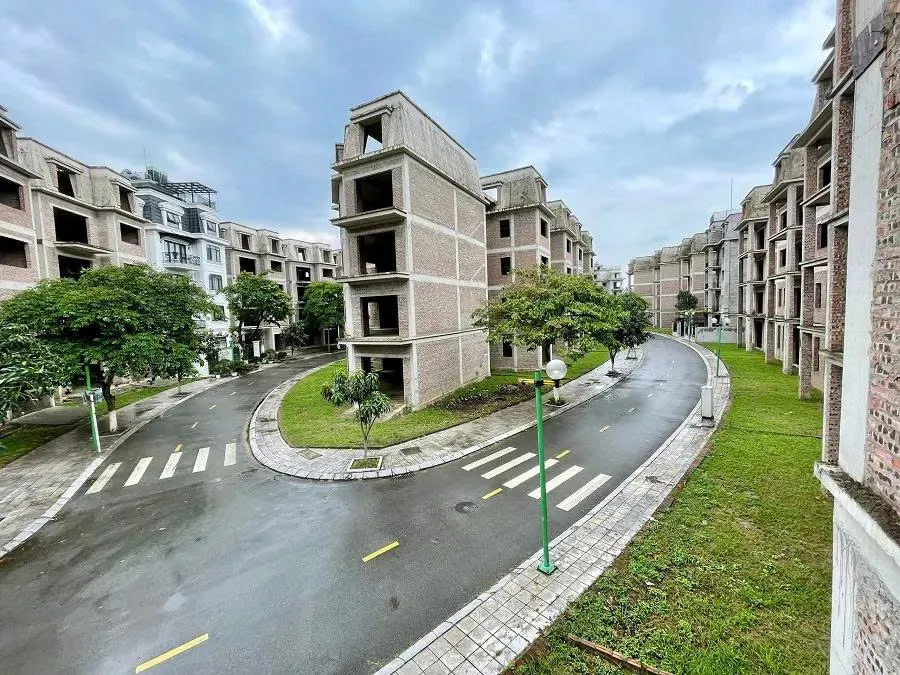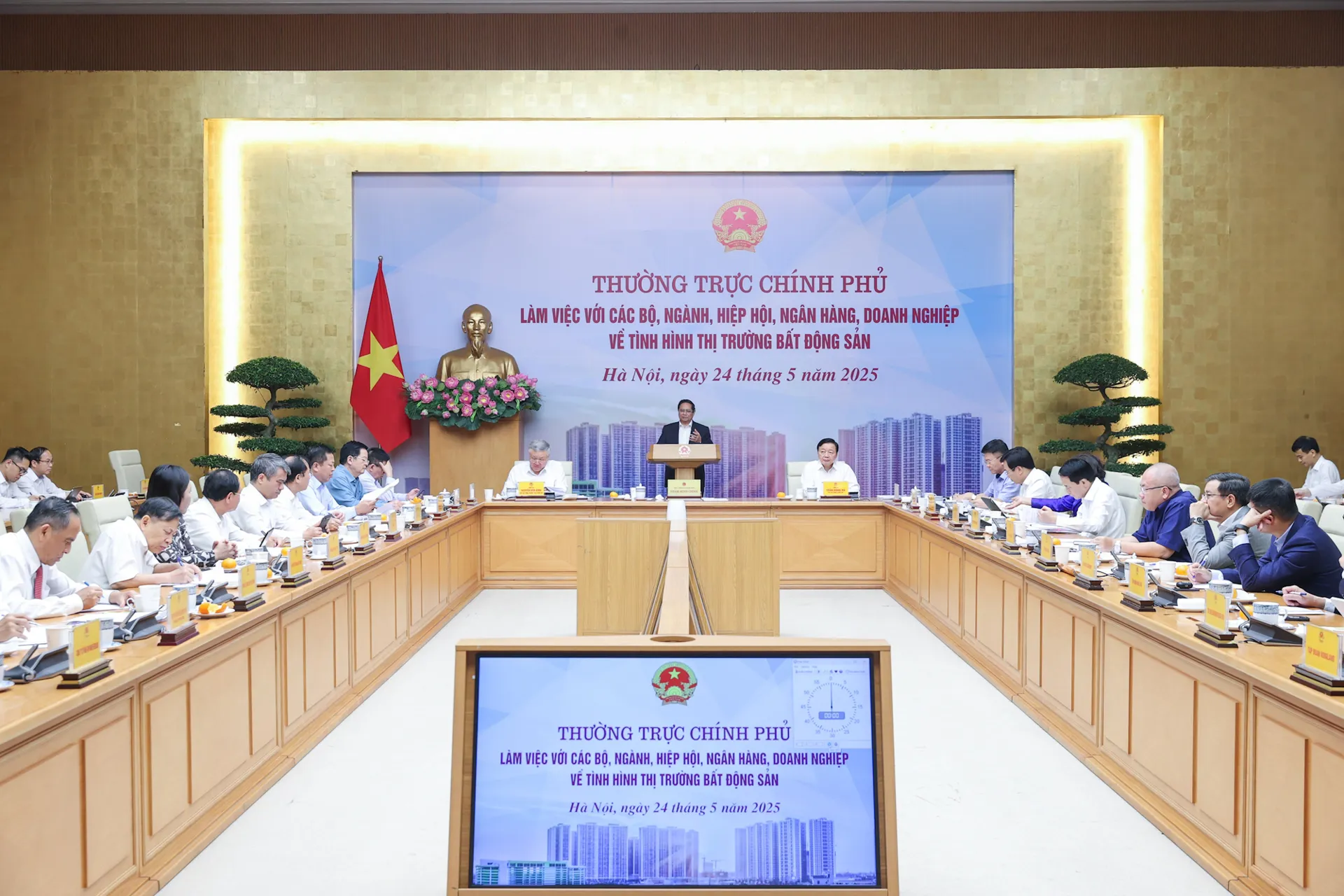Prime Minister orders crackdown on market speculation, manipulation in real estate sector
Market speculation, price manipulation, and abandoned land projects are the major problems that need strong measures from authorities to make the Vietnamese property market healthier.
THE HANOI TIMES — Prime Minister Pham Minh Chinh has ordered a sweeping crackdown on speculative and manipulative activities in Vietnam’s real estate market to make the sector more transparent, fair, and accessible to the public.

An abandoned private home project in Hoai Duc District, Hanoi. Photo: Le Tam/The Hanoi Times
At a national meeting on May 24, the prime minister directed ministries, agencies, and local governments to take strong measures against actions that distort prices and disrupt market order.
He tasked the ministries of Public Security, Agriculture and Environment, and Finance to address and tackle market manipulation, tighten regulations on land auctions, and revise land valuation procedures.
Local authorities must update land price frameworks, improve compensation policies for land clearance, raise deposit requirements in land auctions, and punish those who exploit the auction process for profit, he said.
PM Chinh also urged the finance ministry to develop tax policies targeting inactive land projects and speculative price margins, and to create mechanisms to monitor non-transparent transactions.
Emphasizing the importance of digital transformation, the prime minister called on relevant agencies to digitize real estate procedures and property transactions.
He also urged quick formation of a National Housing Development Fund by June 2025.
To prevent land-related fraud and reduce fire hazards in buildings, PM Chinh asked the police and local authorities to step up enforcement and raise public awareness.
He emphasized the need for accessible, accurate real estate information so that citizens can avoid scams.
“We must decisively deal with speculative behavior and market manipulation,” he said. “People must not be misled or defrauded.”
To improve housing affordability, PM Chinh instructed ministries to remove regulatory bottlenecks, reduce construction and transaction costs, and boost supply.
He asked the banking sector to simplify loan procedures and support eligible individuals and businesses in accessing a VND120 trillion (US$4.6 billion) credit package for housing.
The prime minister also had local governments implement decentralization reforms, eliminate unnecessary technical standards, and craft practical housing policies.
He called for tailored land clearance solutions and quicker resolution of legal hurdles in project implementation, and stressed the importance of rational urban planning.
“It is necessary to reserve central, prime locations for long-term business and service use, while preparing lands in less favorable areas with infrastructures for potential residential properties,” he said.
Ministries and localities must work together to resolve challenges in land-use project, draft a unified decree on real estate investment procedures, develop an integrated housing database linked to the national population system, and explore setting up state-managed property and land transaction centers, he added.
The prime minister also called for relaxing investment approval procedures, and expanding clean land banks for affordable housing projects.
Enterprises should review and restructure investment portfolios, reduce costs, and align project development with market needs, Chinh said.
“All stakeholders must act with responsibility and patriotism to ensure a healthy, sustainable, and transparent real estate market that serves all citizens,” he added.
Signs of recovery in Q1/2025
According to the Ministry of Construction, Vietnam’s real estate market showed signs of recovery in Q1/ 2025.

The government's meeting on May 24 discusses possible moves to improve the Vietnamese property market. Photo: VGP
Fourteen commercial housing projects with over 3,800 units were completed, up 40% year-on-year. Twenty-six new projects with nearly 16,000 units received construction permits, an annual increase of 44%.
Additionally, 59 projects with about 20,000 homes were approved for pre-sale, up 55% on-year. Whilst, nearly 1,000 commercial housing projects involving nearly 400,000 units are under construction.
Meanwhile, 17 infrastructure development projects for subdivided plots were completed, offering over 4,400 plots. Another 490 projects are underway, and 11 new ones have been licensed.
Market activity rose sharply, with more than 33,000 successful transactions in apartments and individual homes, up 32% quarterly, and over 101,000 successful land lot transactions, up 16% quarter-on-quarter.
Although property prices continued to rise, the pace varied by location, project stage, and market segment.
Progress in social housing remains uneven. While over 1,300 sites nationwide, totaling more than 9,700 hectares, have been earmarked for development, implementation of the national plan to build one million social housing units remains behind target.
So far, nearly 680 projects with over 623,000 units have been launched. Of these, 108 projects comprising 73,000 units have been completed, and 155 projects with more than 132,000 units are under construction.
Twenty-two provinces and cities are on track to meet their housing targets, totaling nearly 48,000 units. However, 22 other localities are lagging behind, and 19 provinces have yet to launch any social housing projects.
Despite signs of recovery, the real estate market continues to face obstacles. These include limited supply, mismatches between market segments, and delays caused by complicated legal and administrative procedures related to land use, investment, auctions, and construction.
Fluctuations in investment channels such as gold, stocks, bonds, and inflation have also driven both investors and public sentiment toward real estate.
Nearly 790 real estate projects nationwide remain stalled due to land, legal, funding, and procedural difficulties, many of which require local-level decisions and resolution.












